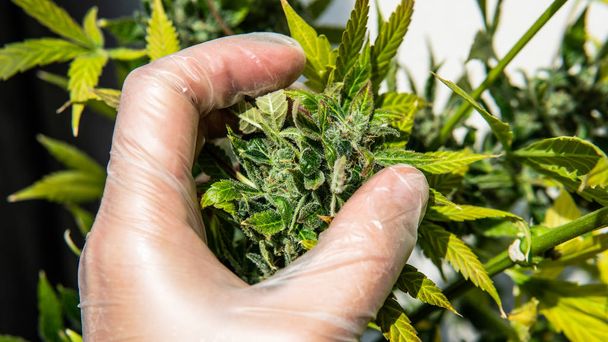Cannabis has long been a subject of public and scientific interest, particularly regarding its effects on memory. This complex plant contains multiple cannabinoids, with THC (tetrahydrocannabinol) being the most widely studied. THC is known for its psychoactive properties, but its impact on cognitive functions, particularly memory, is a contentious topic.
Read on to learn the truth about whether cannabis can enhance or impair memory.
Understanding the Impact of Cannabis on Short-term Memory
The most well-documented effect of cannabis on memory pertains to its impact on short-term memory or working memory during intoxication. THC impairs the ability to form new memories and to perform complex tasks requiring focus and concentration. This is particularly evident in tasks that require the user to manage multiple pieces of information simultaneously. It has been shown that cannabis users often struggle with learning new information and retaining it while under the influence of the drug.
However, it’s essential to consider the context of these findings. Most research focuses on the acute effects of cannabis that is, the immediate impact during and shortly after use. Less is understood about the long-term effects of cannabis on memory when not under the immediate influence of THC.
Long-term Memory and Chronic Use
Chronic cannabis use has been linked to deficits in memory and cognition, but the evidence is not conclusive. Some studies suggest that long-term, heavy cannabis users may exhibit poorer verbal memory and reduced cognitive functioning compared to non-users. However, distinguishing the effects of cannabis from other variables, such as the use of alcohol and tobacco, is challenging.
Interestingly, it has been shown that after a period of abstinence from cannabis, specific cognitive deficits, including memory impairment, may be reversible. This suggests that the impact of cannabis on memory might not be permanent, highlighting the importance of further research to understand the potential for recovery of cognitive functions.
The Role of CBD and Other Cannabinoids
Not all cannabinoids influence the brain in the same way. While THC has been shown to impair memory, CBD (cannabidiol), another major cannabinoid, does not have the same intoxicating effects and is thought to have neuroprotective properties. CBD might counteract some of the memory-impairing impact of THC. However, more research may be needed to fully understand the interactions between THC, CBD, and other cannabinoids.
Therapeutic Uses of Cannabis and Memory
Despite the potential risks, cannabis also has therapeutic benefits that can impact cognitive functions, including memory. For patients with certain medical conditions, such as PTSD (post-traumatic stress disorder), cannabis is reported to help with managing symptoms, including nightmares and replaying of negative memories. In this context, the ability of cannabis to impair memory formation might be beneficial.
Moreover, cannabis is also being researched for its potential in treating diseases like Alzheimer’s disease, where memory loss is a prominent feature. It is also believed that THC can help reduce beta-amyloid proteins in the brain, which are critical components in the progression of Alzheimer’s disease.
Practical Considerations and Safety
The relationship between cannabis use and memory is complex and varies based on individual factors and usage patterns. As such, individuals contemplating the use of cannabis should carefully consider both the potential cognitive risks, such as memory impairment, and the possible benefits, which may include relief from specific medical symptoms.
When deciding to use cannabis, the quality and source of the product are paramount. Ensuring the safety and reliability of cannabis can significantly affect the user’s experience and health outcomes. In this case, it’s important to follow expert guidance, such as weed buying advice, which is essential for navigating the marketplace effectively.
On the other hand, here are key points to consider when purchasing cannabis:
- Verify the source: Choose dispensaries or retailers with good reputations.
- Check for lab testing: Ensure the product is tested for potency and contaminants.
- Understand the strains: Different strains can affect memory and cognition differently.
- Consider the THC/CBD ratio: Higher CBD may mitigate some negative cognitive effects of THC.
- Start with low doses: For a new user, begin using cannabis in low doses to monitor how memory and cognition are affected.
Conclusion
Given the information mentioned above in mind, cannabis indeed affects memory in nuanced ways that are influenced by individual factors and the specifics of use. While it can impair short-term and working memory in the immediate term, the long-term effects are less clear and may be reversible.
With potential therapeutic benefits for certain conditions, further research may be essential to understand how cannabis interacts with memory and cognition fully. This can help inform safer usage practices and public health policies to minimize risks while maximizing potential benefits.






